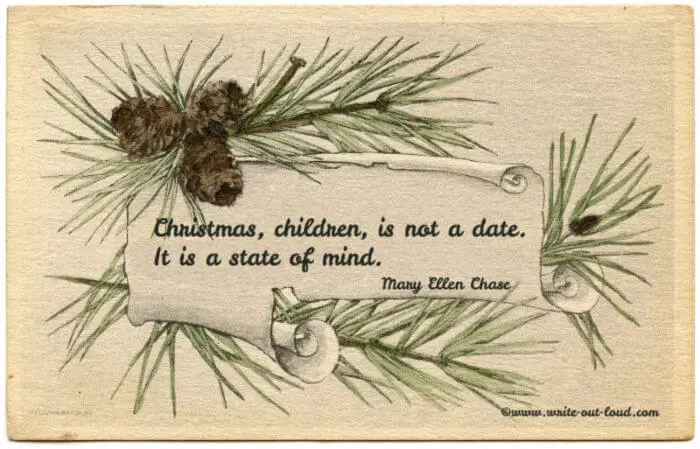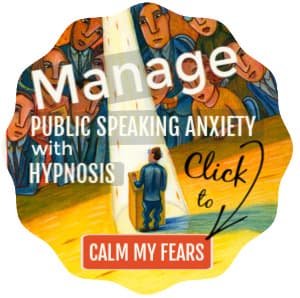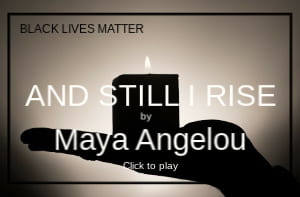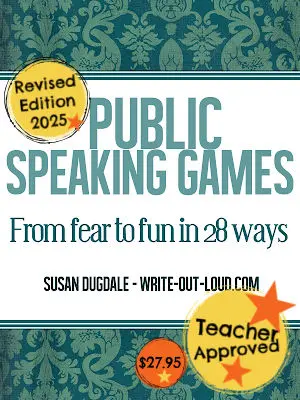- HOME ›
- Christmas speeches
Christmas speeches: short and sweet
How to prepare the best Christmas speech ever!
By: Susan Dugdale | updated Nov. 2025
Christmas speeches are often expected as part of workplace celebrations, like the annual company or office Christmas party. Or they may be included in a family and friends gathering on Christmas day.
And, yes, it can be really tricky pulling a good one together.
Jump straight into it: Begin your Christmas now - 7 easily followed steps with a free printable speech outline.
Because, let's face it.
By the time the season of merriness is upon us, being hey-ho, cheerily merry about preparing a Christmas speech can feel like a step too far.
One twinkly fairy light too many.
However, you can do this. You can find the right words, and make the speech you give a gift by keeping it short, simple and sincere. In other words: stunningly, genuinely awesome. Just the best Christmas speech ever. ☺

Begin your Christmas speech now
The most efficient way to prepare your speech is to:
- start with reading through the 7 step Christmas Speech template. This will help you focus your thoughts about what you want to speak about.
- look over the 6 Christmas theme suggestions to see if there's one you would like to use as the core idea or thread linking your ideas together.
- look through the Christmas quotations to see if there's one you'd like to use somewhere in your speech. (Maybe at the conclusion?)
- then download the free printable speech outline pdf.
- follow steps 1- 6 to create your speech outline using the printable.
- use the suggestions in step 7 to get from the speech outline to a speech ready for rehearsal.
- go through each of the suggestions in step 8 (a bonus step!) to make sure you are as prepared as you can be.
See these 7 steps to Christmas speech happiness in action

Check this completed Christmas speech outline prepared using this framework to see how it works before you begin. It may help make the steps easier for you to follow.
7 step Christmas speech template/framework
1. Who is your speech for?
Who are you talking to? Is it your family, friends, work colleagues, club members...?
What do they want, or expect, to hear? What would delight them? Is it stories about the events of the year shared by everybody, the company triumphs or challenges...?
Does the occasion suit light-hearted humor or is a solemn tone more appropriate?
Knowing exactly who the audience is will help you choose the tone and content of the speech.
For example, it's unlikely your workplace colleagues would think it appropriate if you were overly flippant, or familiar, and regaled them with tales of your five-year-old son's exploits.
Or that your family would be thrilled to hear a detailed week by week breakdown of how sales sunk or soared in the third quarter.
2. What is the purpose of your speech?
Are you aiming to inspire people?
Do you wish to unite them?
Perhaps you want to thank them?
Maybe you want them to laugh and relax.
And perhaps what you want to achieve is a combination of all those suggestions.
Being clear about why you are making the speech will guide your choice of theme, tone and content.
What's certain is you're not deliberately setting out to bore them by rambling on and on, then on some more.
3. What theme is right for your audience?

A theme is a thread to hang your speech on. It unites it by linking all the pieces, (opening, body and conclusion), together.
To keep your speech simple choose one from these six theme suggestions.
4. Organize or outline the body of your speech
It's easier to begin with the body or middle of your speech because this is where you express your main points or ideas around your chosen theme. You will add the conclusion and beginning later.
Depending on how long you want to speak for, choose 1 to 3 main points fitting your audience, purpose and theme.
Start with the most important first. For each point you make, give one or two examples to illustrate it.
When you give your speech you'll link the points with transitions, or bridges, to enable your audience to follow you easily from one idea to the next.
(If you want more information about transitions, why you need them, and how they work, you'll find it here on this page: how to write a speech. Scroll down the page to Step 5: Transitions.)
The pattern or template you'll use looks like this:
- Point One: Main idea - Example, example
Transition or link to... - Point Two: Idea - Example, example
Transition or link to... - Point Three: Idea - Example, example
Transition or link to conclusion of your Christmas speech.
5. Organize or outline the conclusion
The ending of you speech should leave your audience full of hope: looking forward to coming events, united, and with a sense of gratitude.
To finish well, reinforce your theme, summarize your main points and end with strong statement or maybe a quotation. What's ideal is an ending your audience will remember.
For more about conclusions, with examples of speech endings, see: how to end a speech.
6. Organize or outline the introduction
The beginning of your speech:
- Acknowledges and welcomes guests to the occasion. (If you have guests of honor, name them.)
- Introduces the theme of your speech.
- Gives a broad overview of the main points.
- And links or transitions into the body of the speech - your most important and first point.
Download a printable outline template
The printable outline template pdf will guide you through each of the first six steps. Once it's complete you'll be ready to move on to step 7: working with your notes to turn them into a speech.
(The pdf will open in a new window.)
7. Getting from outline to speech
A speech is not a speech until it is spoken out loud to an audience.
If you've followed the first six steps what you've got now is a collection of ideas: sequenced notes covering everything you intend to speak about.
Your next task is to tie your content together from beginning to end so when you say it out loud it flows naturally and can be easily followed by your audience.
There are several ways of doing this.
a) Give a manuscript speech
One way is to use your outline to write the entire speech out paragraph by paragraph, sentence by sentence, word for word. This is called a manuscript speech.
When you deliver the speech, you will read it.
Use the manuscript method if it makes you feel more comfortable or safer. That's important if this is a first speech, or you are very pushed for time.
(Here are two short company Christmas party speeches. Both are in manuscript format. I have given you the complete text of each one to read.)
For much more about writing speeches see: how to write a speech. The article has tips on how to write oral language, that is language to be spoken rather than read, writing for a particular audience, tone and vocabulary choices, how to write a good introduction and a lot more.
Once you've finalized the text you're ready to practice reading it aloud. For you own sake please take the time to do this. A speech badly read is very difficult to listen to and you want your speech remembered for the right reasons.
Besides, delivering a manuscript speech well is a valuable skill to have. Find out how to read a speech effectively.
b) Give an extemporaneous speech using cue cards
Another way is to give your speech extemporaneously. That is to use a mix of carefully scripted and sequenced material and impromptu speaking.
Done well, an extemporaneous speech is naturally flowing and conversational. (My sample office Christmas party speech is an example of one.)
Steps 4, 5 and 6 of your completed outline forms a large chunk of the preparation for one.
How you link all that material together, and the exact words you use is the improvised or impromptu part of the mix.
To interact with your audience and speak freely, without having to use a podium to put outline notes on, use hand held cue cards. This entails transferring your outline to a carefully curated series of numbered and labeled cards.
Each card carries one MAIN point and its supporting details.
When you glance at it, the words and phrases you've put on it act as a prompt and you remember what you wanted to cover.
For more: how to make and use cue cards
Rehearsing your speech
Both ways, manuscript and extemporaneous, need practice or rehearsal before you deliver the speech to your audience.
Have a few trusted friends, colleagues or family members listen to it. Get their feedback on content, tone and length,* (2-3 minutes is good.) Make any changes necessary, and run it through again.
*Timing your speech is important. You'll want to make sure it easily fits the time allotted in occasion's program. And that you avoid the embarrassment of going on too long and keeping people from what they want to do! Keep it brief.
8. How, when and where is the speech being delivered?
This eighth step covers the make or break details: the seemingly little things that if overlooked can change an experience from happy to challenging in an instant.
How, when and where you deliver your speech significantly affects aspects of the preparation you need to do.
For example if the setting for your speech is an intimate family gathering around the dinner table you won't need a lectern/podium on a raised stage or a microphone.
But if you're in a hall they might be absolutely necessary to be seen and heard.
Thinking ahead will help you make sure you have gathered together everything you need and have done everything you can in order to give your speech well.
For instance:
- If you need a mike, you've got it, know how to use it and have tested it.
- If you're standing on a stage or dais to give your speech that you've stood on it before the event to make sure the sight lines for those watching are OK and that everyone will see you.
- You've made sure the lighting works for you and the audience.
- If you're using either cue cards or a complete manuscript, you've practiced with them to make sure you can read them easily.
(See how make cue cards and how to read a speech effectively for information about the best readable lay outs.) - You've got a stand to put your notes on, if you need one. You've checked that it's the right height for you and have practiced using it.
- If possible, you've scheduled your speech for the beginning of the occasion.
- You've saved the glass of Christmas cheer to have after your speech rather than before it and, you've remembered to smile. This is a festive 'we-are-having-a-good-time' speech. You need to look the part! ☺
(This list is a version of what I call a Bring-It-On list. The principle behind compiling one is that if you carefully think through every aspect of making the speech, there'll be very little chance of something vital being overlooked.
- Have I got the right date, the right venue?
- Are my clothes sorted?
- Etc., etc.
A bring-it-on list is great for reassuring yourself that you've done as much as you can to be ready.
Open the Bring-It-On list link and you'll find out more about them and a printable ready for your use.)
6 suitable themes for Christmas speeches

1. Gratitude
Be specific about what you are expressing gratitude for, and why. Are you grateful for health, family, workmates, friendship, kindness, favorable events, good times together, challenges, food, your country, the world we share...?
2. Giving
This could be about the joy of giving: giving time, giving thought, giving a helping hand, giving gifts, giving donations...
3. Hope
Hope is feeling positive about looking ahead. You could talk about feeling hopeful regarding new beginnings, plans for the future, resolutions, nurturing creativity or ideas, sowing seeds...
4. Remembrance
Remembrance is way of honoring or respecting the past. It could be recollections of people or events and their significance, highlights of the previous year's events...
5. Family, company or organization
What unites the group of people you are giving this speech to? Are you family? Do you share the same workplace or club?
Use this theme to talk about significant events impacting the lives of group members: births, deaths, triumphs, and challenges...
Or you could talk about the importance of love, belonging, continuity, history, values, hopes... from the point of view of being a member of this group.
6. Unity
Use this theme to emphasize cooperation, community, the achievements made possible through working together, embracing and celebrating differences, humanity, love, compassion and understanding...
Have you seen the example speeches yet?

Don't miss out on the sample Christmas Speech outline prepared using these 7 steps.
You'll see how easy it will be to adapt the template for your own use!
And there are these two short company Christmas party speech examples to read as well.
Quotations for Christmas speeches

Christmas, children, is not a date. It is a state of mind.
Mary Ellen Chase
If there is no joyous way to give a festive gift, give love away.
Unknown
Heap on the wood! The wind is chill; But let it whistle as it will, We'll keep our Christmas merry still.
Sir Walter Scott
I am not alone at all, I thought. I was never alone at all. And that, of course, is the message of Christmas. We are never alone. Not when the night is darkest, the wind coldest, the word seemingly most indifferent. For this is still the time God chooses.
Taylor Caldwell
Gifts of time and love are surely the basic ingredients of a truly merry Christmas.
Peg Bracken
Christmas Day is a day of joy and charity. May God make you very rich in both.
Phillips Brooks
Christmas gift suggestions:
To your enemy, forgiveness.
To an opponent, tolerance.
To a friend, your heart.
To a customer, service.
To all, charity.
To every child, a good example.
To yourself, respect.
Oren Arnold
The way you spend Christmas is far more important than how much.
Henry David Thoreau
The means to gain happiness is to throw out from oneself, like a spider, in all directions an adhesive web of love, and to catch in it all that comes.
Leo Tolstoy
It is Christmas every time you let God love others through you...yes, it is Christmas every time you smile at your brother and offer him your hand.
Mother Teresa
He who has no Christmas in his heart will never find Christmas under a tree.
Unknown
Unless we make Christmas an occasion to share our blessings, all the snow in Alaska won't make it 'white'.
Bing Crosby
The best of all gifts around any Christmas tree: the presence of a happy family all wrapped up in each other.
Burton Hillis
Christmas happens
everywhere
every time
someone reaches out
to touch another life with love
Carol Duerksen
Slightly jaundiced Christmas quotations
From a commercial point of view, if Christmas did not exist it would be necessary to invent it.
Katharine Whitehorn
Christmas is forced upon a reluctant and disgusted nation by the shopkeepers and the press; on its own merits it would wither and shrivel in the fiery breath of universal hatred.
George Bernard Shaw
I stopped believing in Santa Claus when my mother took me to see him in a department store, and he asked for my autograph.
Shirley Temple
Christmas at my house is always at least six or seven times more pleasant than anywhere else. We start drinking early. And while everyone else is seeing only one Santa Claus, we'll be seeing six or seven.
W. C. Fields
Christmas is a time when everybody wants his past forgotten and his present remembered. What I don't like about office Christmas parties is looking for a job the next day.
Phyllis Diller
I once bought my kids a set of batteries for Christmas with a note on it saying, toys
not included.
Bernard Manning
Go well writing and delivering your Christmas Speech!
May it inspire and give joy.

About the Author: Susan Dugdale, founder of write-out-loud.com, is a qualified teacher of English and drama with over 40 years of experience. Drawing on her professional expertise and her personal journey from shyness to confidence, Susan creates practical, real-world resources to help people find their voice and speak with power.






